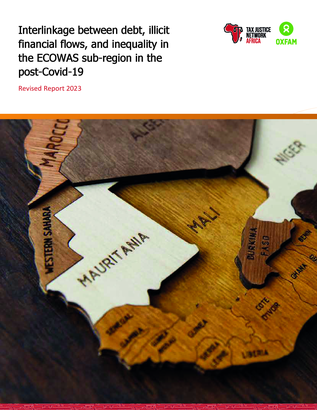Interlinkages between Debt, Illicit Financial Flows, and Inequality in the ECOWAS Sub-Region in the Post-Covid-19 Era

This study examines the interlinkages between debt, illicit financial flows (IFFs), and inequality in the ECOWAS sub-region in the post-COVID-19 era. African countries face mounting development challenges, often resorting to borrowing amid declining aid and investment, which has led to unsustainable debt burdens. The pandemic further exposed vulnerabilities, intensifying fiscal pressures and widening inequality.
The study pursued three objectives: to measure the level of IFFs, to assess current debt and inequality trends in West Africa, and to establish their interconnections. Using data from 1980–2020, it applied econometric models to estimate (1) the link between IFFs and debt, (2) the effect of IFFs on inequality, and (3) the impact of debt build-up on inequality. Findings revealed that IFFs significantly exacerbate debt stocks, increasing debt-to-GDP ratios by around 3%. The United States, India, and France emerged as the top destinations of IFFs, with Nigeria identified as the largest source within ECOWAS.
Though the direct relationship between IFFs, debt, and inequality was less conclusive, the evidence highlights how illicit flows undermine fiscal capacity, reduce policy space, and entrench inequality. The study calls for transparent, accountable fiscal responses, stronger cooperation on IFF curtailment, and reforms ensuring revenues are allocated to equitable, growth-enhancing uses.
